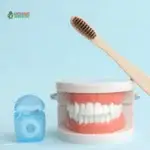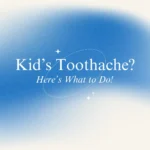Nutrition’s Impact on Kids’ Dental Health: The Foundation for Strong Smiles
In the realm of pediatric dentistry, the importance of nutrition cannot be overstated. What children eat plays a significant role in their dental health, shaping the development of their teeth and gums and influencing their susceptibility to cavities and other oral issues. Understanding the relationship between nutrition and dental health is essential for parents and caregivers in nurturing strong, healthy smiles for their little ones.
The Building Blocks of Dental Health
Proper nutrition lays the groundwork for optimal dental health from the very beginning. As children grow, their bodies rely on a balanced diet rich in essential nutrients to support the development and maintenance of healthy teeth and gums.
Calcium, found in dairy products, leafy greens, and fortified foods, is crucial for building strong tooth enamel and bones. Vitamin D helps the body absorb calcium, promoting healthy tooth development. Incorporating vitamin D-rich foods such as fatty fish and fortified dairy products into children’s diets can contribute to strong, resilient teeth.
Phosphorus, another mineral abundant in protein-rich foods like meat, poultry, and eggs, plays a vital role in tooth mineralization and repair. Including phosphorus in children’s meals helps fortify their teeth against decay and damage.
Vitamin C, found in fruits and vegetables like oranges, strawberries, and bell peppers, supports gum health by promoting collagen production. Healthy gums are essential for anchoring teeth firmly in place and protecting against periodontal disease.
The Impact of Sugar and Acidic Foods
While nutrient-rich foods bolster dental health, sugary and acidic foods can wreak havoc on children’s teeth. Sugars from candies, sodas, juices, and processed snacks fuel the growth of harmful bacteria in the mouth, leading to acid production and tooth decay.
Acidic foods and beverages, such as citrus fruits, tomatoes, and soft drinks, can erode tooth enamel over time, making teeth more susceptible to cavities and sensitivity. Limiting children’s consumption of sugary and acidic foods, especially between meals, can help mitigate the risk of dental problems.
Practical Tips for Promoting Dental-Friendly Nutrition
Parents and caregivers play a crucial role in shaping children’s eating habits and fostering a dental-friendly diet. Here are some practical tips to promote optimal nutrition for kids’ dental health:
- Offer a variety of nutrient-rich foods: Incorporate a diverse range of fruits, vegetables, whole grains, lean proteins, and dairy products into children’s meals and snacks to ensure they receive essential vitamins and minerals.
- Limit sugary and acidic treats: Reserve sugary and acidic foods and beverages for occasional treats rather than everyday indulgences. Encourage water as the primary beverage choice to help rinse away food particles and maintain hydration.
- Practice good oral hygiene: Reinforce the importance of brushing and flossing daily to remove plaque and food debris from teeth and gums. Supervise young children’s brushing habits to ensure thorough cleaning.
- Schedule regular dental check-ups: Ensure children visit the dentist regularly for professional cleanings, examinations, and preventive treatments. Dental professionals can offer personalized guidance on nutrition and oral care practices tailored to children’s specific needs.
By prioritizing nutritious foods and minimizing sugary and acidic treats, parents can lay the foundation for strong, healthy smiles and instill lifelong habits that support optimal dental health for their children.
Little Kids Dentistry










